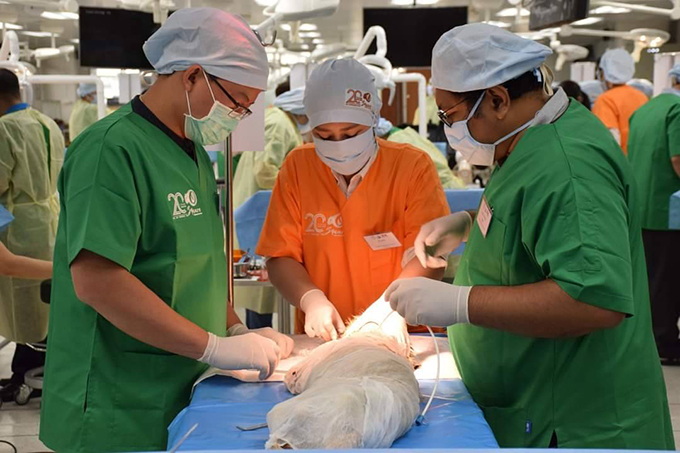The problem with cutting up donated pets time and again to learn about anatomy is all the nasty, carcinogenic chemicals used to preserve them.
Now Chulalongkorn University says it has developed a way to embalm animal cadavers that will no longer give vet students headaches – or cancer – using fluids free of formalin, aka formaldehyde. They say it’s more environmentally friendly as well.
The school’s Veterinary Science Faculty said it experimented on chunks of meat for four years before finally eliminating carcinogenic formalin from use in preserving animal bodies for student use.
Instructor Siripong Kiatkittikul said they have created two formulas for use on the instructional cadavers nicknamed Ajarn Yai, or “principal,” by Thai students: one for rigid, dry remains used for study of musculoskeletal structures, and a soft variety used for getting their blades wet.
Find a fuzzy shelter foreverpal on new site by Chula vet students
“The ‘soft headmaster’ formula is used on cadavers for students to practice surgery,” Siripong said in an announcement. “These cadavers need to be soft with pliable organs, joints and muscles just like those of real animals.”
Sirakarnt Dhitawat said the new embalming fluids are made from a variety of less toxic substances including preservatives used for food and cosmetics, detergent, disinfectant, color enhancers and moisture-retaining substances for that dead-body softness.
They have been used to preserve dead dogs, cats, rabbits, pigs and sheeps already, the school said, which will stay good for up to three years in a freezer and four months once removed.
Have a beloved pet who could help educate the next generation of animal docs? The faculty welcomes donation of new “headmasters” that have died – or are about to – via 02-218-9638 Ext. 9.




